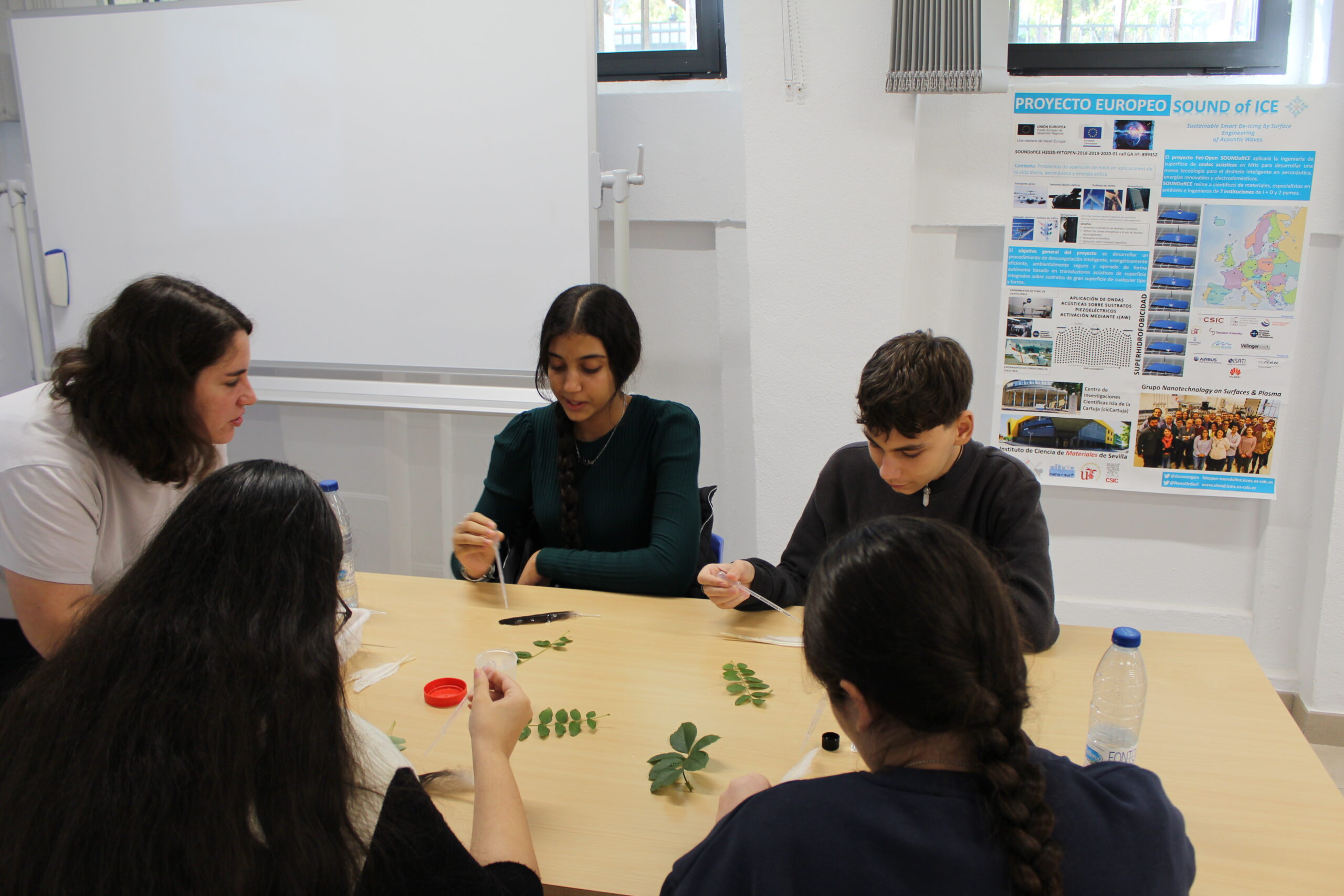11F- Outreach for equality

‘Todas hacemos ciencia: nanotecnología para un futuro sostenible’ is the activity that the Nanotechnology in Surfaces and Plasma Research Group (NanoOnSurf), drive of researchers from the CSIC and the University of Seville, has organized for the celebration of the International Day of Women and Girls in Science which is celebrated every February 11 internationally.
On this occasion, the NanoOnSurf team will visit a total of four cities and municipalities to bring science to more than 500 students from all educational stages at the IES Pino Rueda, IES Lauretum, IES Nestor Almendros and the María Auxiliadora school. Salesians. The objective of these activities is to encourage scientific-technical vocations among the little ones, and especially girls, as well as making visible historical and contemporary female scientific and technological leaders.
According to this objective, the group’s researchers will explain the work they do in the laboratories of the Institute of Material Sciences of Seville, especially in the scope of three projects focused on green nanotechnology: 3DScavengers, Sound of Ice and Drop Ener.
The first of them, a European ERC Starting Grant project led by researcher Ana Borrás, seeks to develop a device that simultaneously captures all types of environmental energies (voice waves, turning on lights, temperature changes, etc.). In the case of the European Sound of Ice project, formed by a consortium of five countries, also led by Dr. Borrás, it seeks to develop acoustic wave systems that allow the most sustainable way to defrost ice on airplanes, windmills, drones found in low temperature environments.
Finally, the Drop Ener project, one of the latest projects obtained by researchers Ana Isabel Borrás and Carmen López Santos, tries to design what are known as “rain panels”: If we obtain energy from the sun, why not from the rain? This project, which has received national funding from the Ministry of Science, investigates the development of systems that allow obtaining kinetic energy from the impact of raindrops. In this way, solar and rain panels could be produced that would work 365 days a year.
Nano is cool
The activities carried out in the classrooms focus especially on raising awareness of the opportunities of nanotechnology, working on concepts in a fun way that include: the typology of energies (triboelectric, piezoelectric, solar, thermal, etc.), how nanoscience is developed based on nature or work processes taking advantage of vacuum and plasma.
In this way, students learn how materials research, and nanotechnology in particular, is one of the fields where there are various opportunities to fight the effects of climate change and offer more sustainable energy alternatives.
Collaborations
Some of these activities promoted by NanoOnSurf are carried out in collaboration with the Andalusian section of the Association of Women Researchers and Technologists through the project ‘A scientist in your Andalusian school’.
